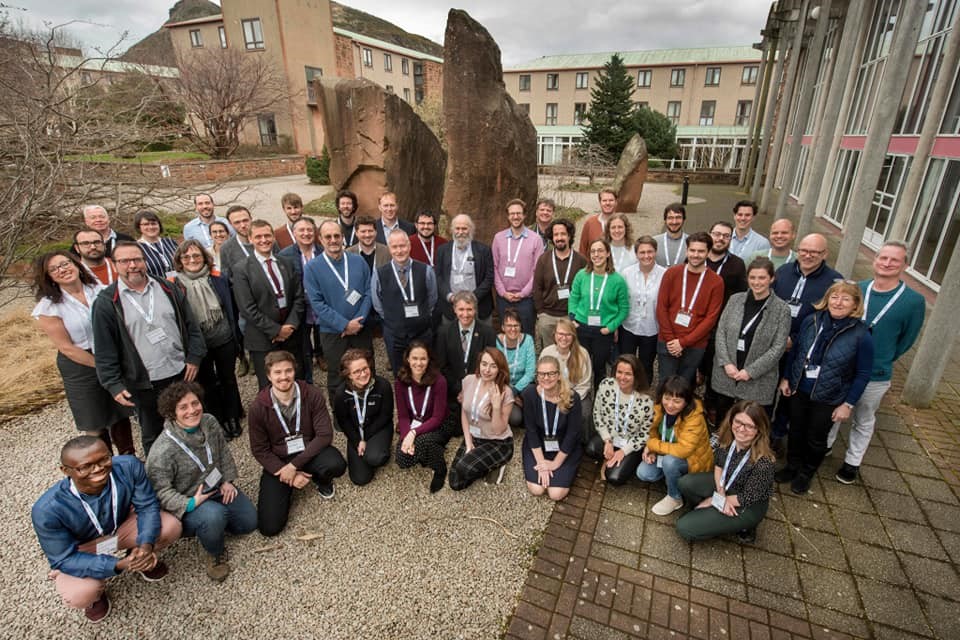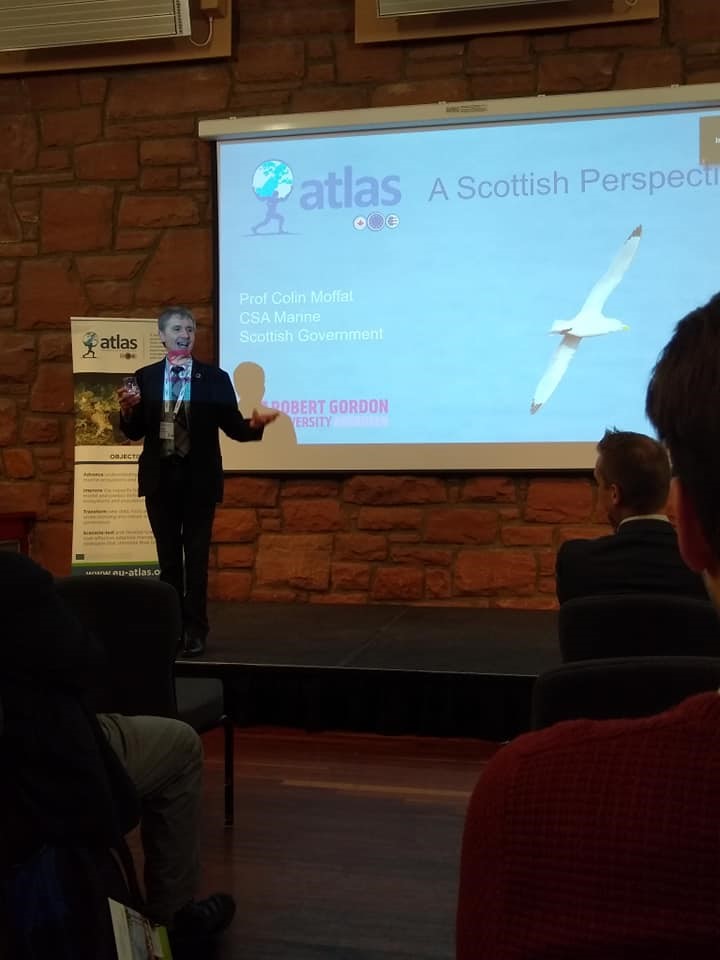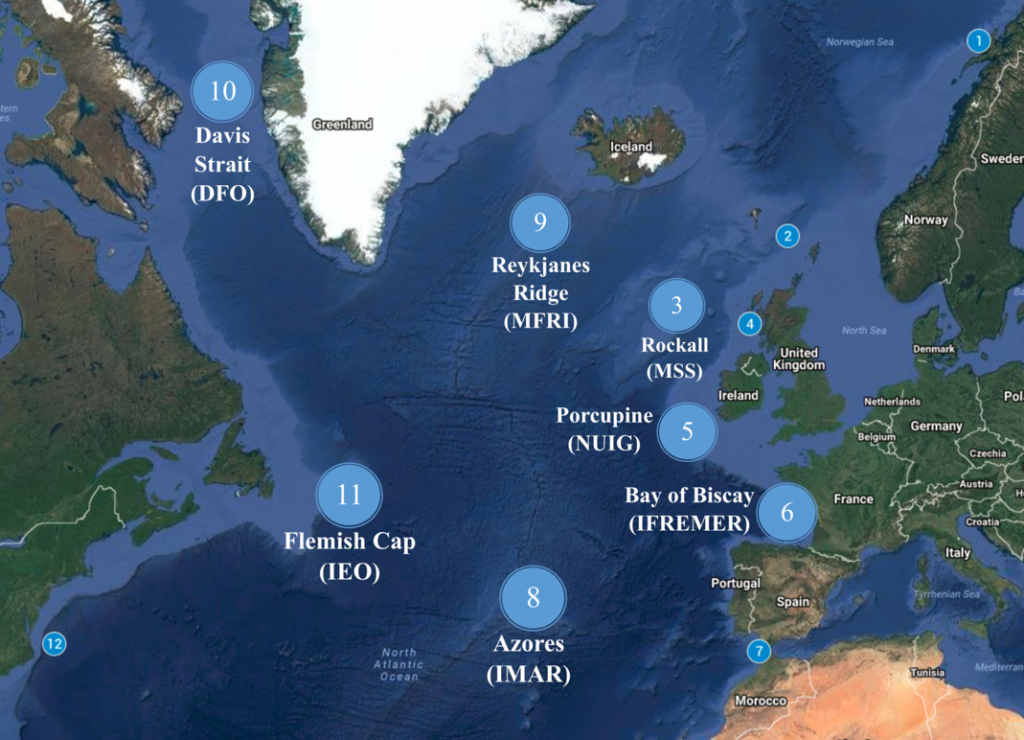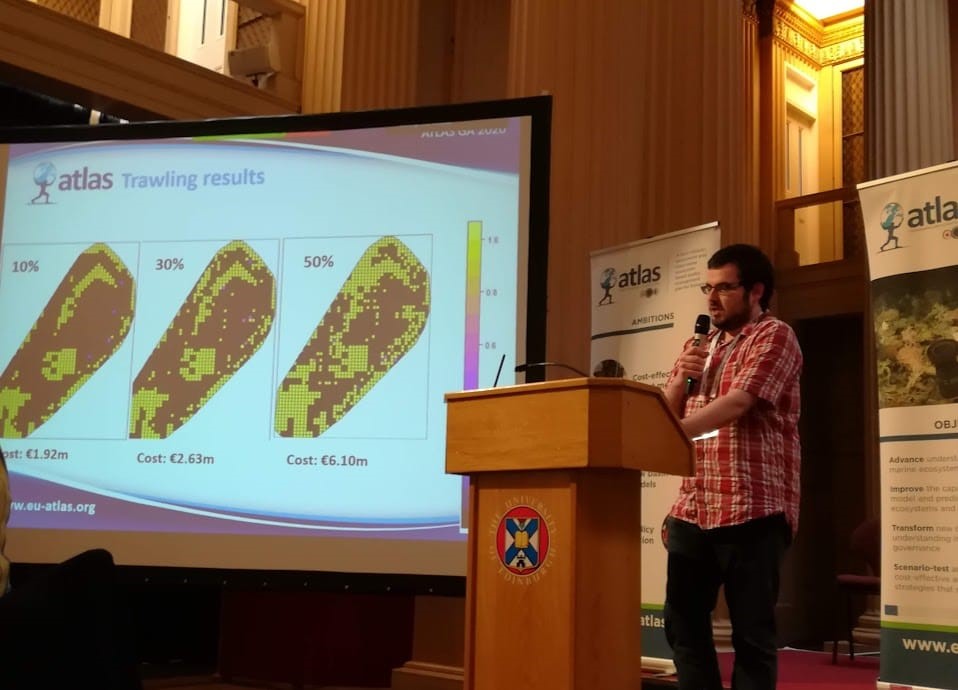Marine
Research Partners Collaborate One Last Time
May 20, 2020 by Marine Directorate Communications No Comments | Category Collaborations, Fisheries, Marine Directorate general, Marine Directorate Science, Publications
Earlier this year our colleague and Spatial Ecologist Dr Grant Campbell attended the final EU ATLAS General Assembly meeting in Edinburgh. 26 multidisciplinary partners and leading organisations, including Marine Scotland, attended the conference both in person and via video call to discuss their combined knowledge and understanding of the marine environment in the North Atlantic.
Here Dr Campbell tells us what was discussed and what the next steps are following the completion of the EU ATLAS Project.
****************************************************************
EU ATLAS (“A Trans-Atlantic Assessment and deep-water ecosystem-based spatial management for Europe”) is a research and innovation action funded under the European Union’s Framework Programme for Research and Innovation, Horizon 2020, and is the largest integrated study of deep Atlantic ecosystems ever undertaken.
I am fortunate enough to be involved and represent Marine Scotland Science (MSS) interests in terms of providing an improved knowledge on how effective systematic conservation planning can achieve various social, economic and environmental objectives in the North Atlantic.
The final EU ATLAS General Assembly opened with a welcome message from Edinburgh University’s Sir Peter Mathieson and also the ATLAS outline video, which can be viewed here.
Several keynote talks opened proceedings, including the dynamic and effervescent Professor Colin Moffat, Chief Scientific Advisor Marine for Scottish Government. Professor Moffat gave an interesting, in-depth talk about how continued work within ATLAS can help to:
- shape policy,
- increase scientific understanding, and
- bolster discussions between stakeholders.
Completing the keynote talks was Hermione Cockburn from Dynamic Earth who talked to us about the legacy that ATLAS will have on society, particularly focussing on how understanding deep Atlantic Ecosystems could help influence education and outreach both now and in the future.
Four Key ATLAS Objectives
Talks over the first two days were centred around the four key ATLAS objectives, which are:
- Advance our understanding of deep Atlantic marine ecosystems and populations
- Improve the capacity to monitor, model and predict shifts in deep water ecosystems and populations
- Transform new data, tools and understanding into robust ocean governance
- Scenario test and develop science-led cost effective adaptive management strategies that stipulate Blue Growth.
Advancing our understanding of deep Atlantic marine ecosystems and populations
Our first objective of the conference was ‘Advancing our understanding of deep Atlantic marine ecosystems and populations’. This was chaired by Stuart Cunningham (SAMS) and hosted varied discussions on themes such as: fluxes with subpolar transatlantic circulation measurements, Atlantic Palaeo-Circulation, and societal values for deep Atlantic ecosystem services.
Improve the capacity to monitor, model and predict shifts in deep water ecosystems and populations
We then moved onto talks centred around the second objective to ‘Improve the capacity to monitor, model and predict shifts in deep water ecosystems and populations’. Chaired by David Thornalley (University College London (UCL)), talks in the sessions comprised of discussions such as: changes in biodiversity distribution under IPCC (Intergovernmental Panel on Climate Change) scenarios and a talk from my colleague, David Stirling, where he presented the habitat suitability modelling (HSM) work developed from existing data and new ATLAS data for Vulnerable Marine Ecosystems indicator taxa and key deep-sea fish species under current environmental conditions, by each case study area.
The day ended with a poster session in Edinburgh University’s Playfair Library Hall where events also took place the following day and attendees discussed the third objective ‘Transform new data, tools and understanding into robust ocean governance’.
Transform new data, tools and understanding into robust ocean governance
Presentations covered ATLAS GeoNode (a central hub that enables project stakeholders the opportunity to discover, visualise and download ATLAS geospatial data) to the publics views based on an ocean literacy survey in the Azores and policy implications of ATLAS research and recommendations for ocean governance under changing deep-sea dynamics.
The second half of the day comprised of work connected to the final objective on ‘Scenario test and develop science-led cost effective adaptive management strategies that stipulate Blue Growth’.
Scenario test and develop science-led cost effective adaptive management strategies that stipulate Blue Growth
Talks in this session varied from marine spatial planning activity in the Flemish Cap, valuing deep sea ecosystems across Europe and North America and scenario based simulations in Rockall (which was presented by yours truly!)
My talk at the ATLAS GA discussed how we can utilise scenario based simulations to improve the Systematic Conservation Planning at Rockall Bank. For around 200 years, Rockall Bank has been used as a fishery and has recently been identified as an attractive area for oil and gas exploitation. This new research will aim to examine the environmental and economic effects activities like fishing and oil and gas exploitation would have on marine ecology and the economic value at Rockall, long and short term.
The day ended with a discussion on Horizon Europe, a planned 7-year European Union scientific research initiative to succeed the current Horizon 2020 programme, and a perspective from the National Oceanic and Atmospheric Administration (NOAA) on ATLAS and a look ahead to the UN Ocean Decade.
The second half of the week involved many of the conference participants taking part in a communications hub to write papers for the project and to continue discussions between others on many ATLAS related topics.
Further Information:
- Led by the University of Edinburgh (Scotland, UK) ATLAS brings together 25 partners (and one linked third party) from 10 European countries, the USA and Canada. For more information on the ATLAS project, please visit www.eu-atlas.org or follow the project on Twitter @eu_atlas| Facebook @EuATLAS | LinkedIn ATLAS – Deep Discoveries| YouTube: EU_ATLAS
- EU ATLAS Brochure
- Thanks and acknowledgement to Alex Ingle and Murray Roberts for their work on the ATLAS outline video.
Tags: climate change, Dynamic Earth, Edinburgh University’, environment, EU ATLAS, fisheries, Horizon 2020, Horizon Europe, marine environment, research, Rockall, science, UN Ocean Decade






Leave a comment